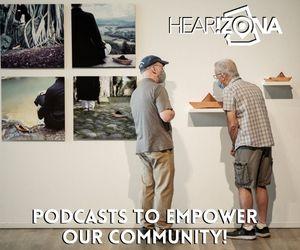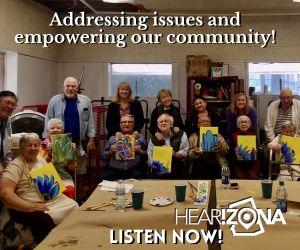Click to Listen:
Johnston: Solving Classical Music's Harassment Problem;
Can Learning Music Help with Creativity?
It’s “This Week in Classical Music”—an update on what’s happening in the classical music world—I’m Randy Kinkel.
Classical Music’s Harrassment problem and how to solve it
A recent study commissioned by the Incorporated Society of Musicians reported a “high level” of discrimination and sexual harassment in the classical music sector.
Mezzo-soprano Jennifer Johnston, writing in the Guardian, says “As a singer, I have witnessed numerous incidents of harassment, when maestros have taken advantage of their Positions…Such occurrences are common throughout the industry, and younger musicians are especially vulnerable to abuse. Harassment often goes unreported for fear of the repercussions and the risk of not being employed in the future.
It is an environment that facilitates abuse, because of the huge disparity between the powerful and the powerless, and there is rarely any structure in place to hold a maestro to account.
It may be difficult to achieve, but I would like to see an industry-wide code of conduct, clearly setting out standards of behavior…d training should be given to all musicians for how to deal with and defend against sexual harassment at work. Today’s heightened awareness provides an opportunity for change that must not be ignored
____________________________________________
The way we mentally process the unexpected may be a key to creativity.
In a new study, a Wesleyan University research team report the brains of musicians are uniquely attuned to the unexpected. Electronic monitoring revealed these players have "markedly different neural sensitivity to unexpected musical stimuli," the researchers write. Because of their training, musicians anticipate unpredictable turns in the music and learn to engage with them in a positive, creative way.
And apparently that dynamic reflex also stimulates creative thinking. The study, in the journal Brain and Cognition, featured 36 students from Wesleyan University and the Hartt School of Music. Twelve were studying jazz (including improvisation), 12 were classical music students, and 12 were non-musicians.
While monitoring their brains as they listened to Music, researchers also asked participants to complete a creative thinking test. They were scored on the number of items they came up with, and their originality.
All the musicians—jazz and classical alike—scored higher in originality than their non-musical peers.
This finding provides more evidence that music training is beneficial to the brain in ways that extend far beyond the practice room.
For more on these and other items and events, go to the website, K-B-A-C-H dot org; Be listening each week at this time for another update. Follow us on Facebook and twitter, and also listen every weekday at Noon for the Most Wanted Hour with Linda Cassidy, playing your top 100 classical hits. I’m Randy Kinkel for KBACH’s “This Week in Classical Music”; Member supported 89.5 KBAQ Phoenix and HD, a service of Rioo Salado College and Arizona State University.










